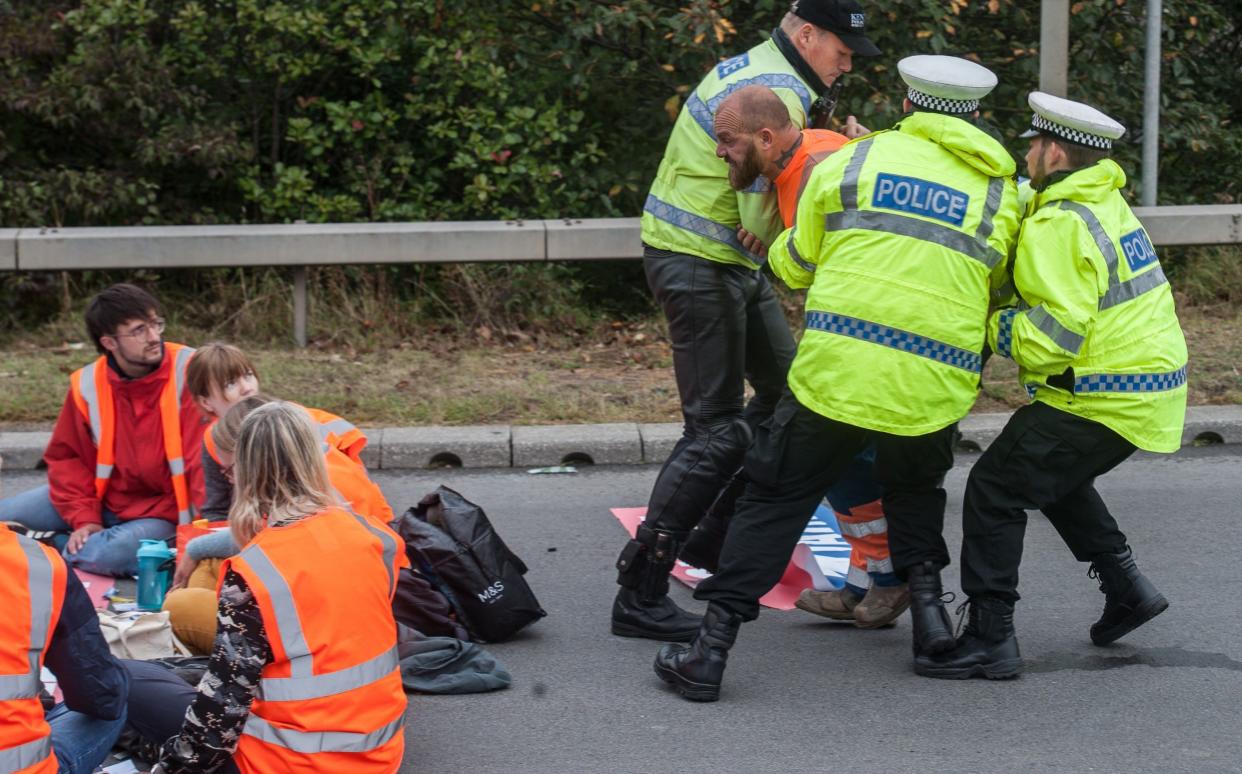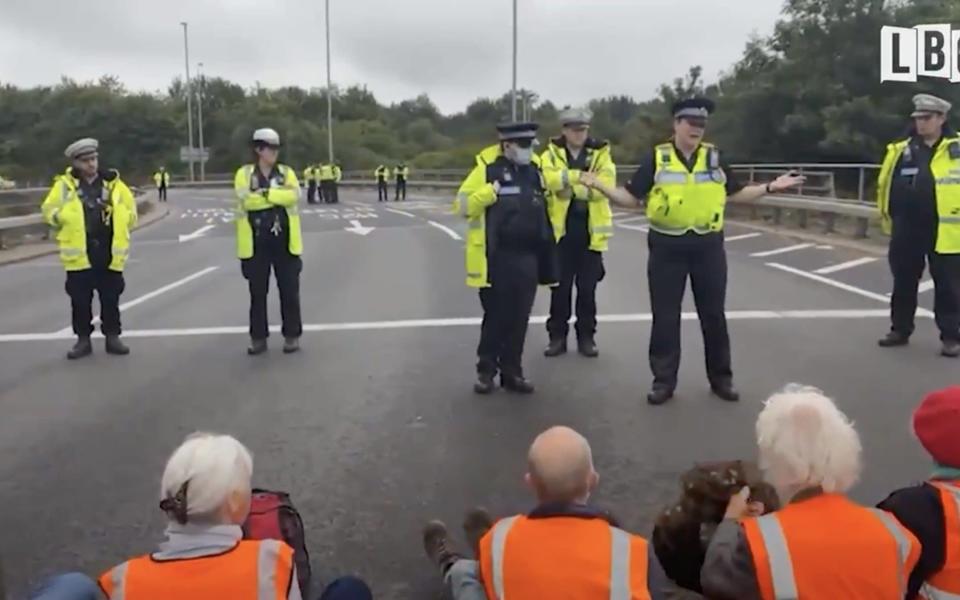Soft approach to disruptive protests shows police are out of touch with public opinion

From dancing with Extinction Rebellion (XR) activists to taking the knee at Black Lives Matter demonstrations, officers have not hesitated in showing sympathy for the protesters they are supposed to police.
This week’s events on the M25, where environmental activists were twice able to block the busy motorway, is the latest in a series of soft policing blunders during protests across the country.
Since May 2018, when XR first burst on to the scene, numerous viral videos have shown officers assisting protesters as they blocked busy roads and bridges, rather than arresting them.
In one video from 2019, a Metropolitan Police officer was filmed skateboarding on Waterloo Bridge as protesters blocked the thoroughfare for several days, preventing thousands of commuters from getting to and from work.
The incident, which was described as “disappointing” by senior Met officers, came 48 hours after another video surfaced showing officers dancing with the XR crowd as thousands of protesters shut down Oxford Street.
The video showed the officers fist-pumping the air and dancing to chants of “we love you” as the climate activists blocked buses, taxis, bikes and cars.
Jane Connors, a Metropolitan Police commander, condemned the behaviour, saying: "I'm disappointed by the video and the unacceptable behaviour of the officers in it.
"We expect our officers to engage with protesters but clearly their actions fall short of the tone of the policing operation at a time when people are frustrated at the actions of the protesters.”
The Met also faced questions after an officer was filmed talking the knee with protesters outside 10 Downing Street in June 2020, when the UK’s streets were filled by Black Lives Matter protests following the death of George Floyd in the US.
Meanwhile, officers in Hertfordshire were criticised for failing to move on XR protestors who blockaded the printing presses of Britain’s biggest newspapers in Broxbourne last year. Five activists who were charged with their involvement in the incident told a court in May that police made little effort to move them on during an 11-hour stunt.
In March, the new police approach to policing protests was criticised in a watchdog report which ruled that officers had been too soft on disruptive activists.

HM inspectors said police had “too readily” tipped the balance in favour of the human rights of demonstrators like XR and Black Lives Matter against those of residents and businesses hit by serious disruption.
The report, led by Matt Parr, HM Inspector of Constabulary, said this put them out of kilter with the public, who felt by a five-to-one majority that such disruption from protests was “completely unacceptable” and who by four-to-one backed a “zero tolerance” approach to criminal damage.
“One of the things that has caused it to get out of kilter is that police don’t always do enough to assess the impact that peaceful protests have on the lives of local residents and businesses. So this has sometimes caused enormous disruption and it has tipped the balance in favour of the protesters,” he said.

 Yahoo News
Yahoo News 
